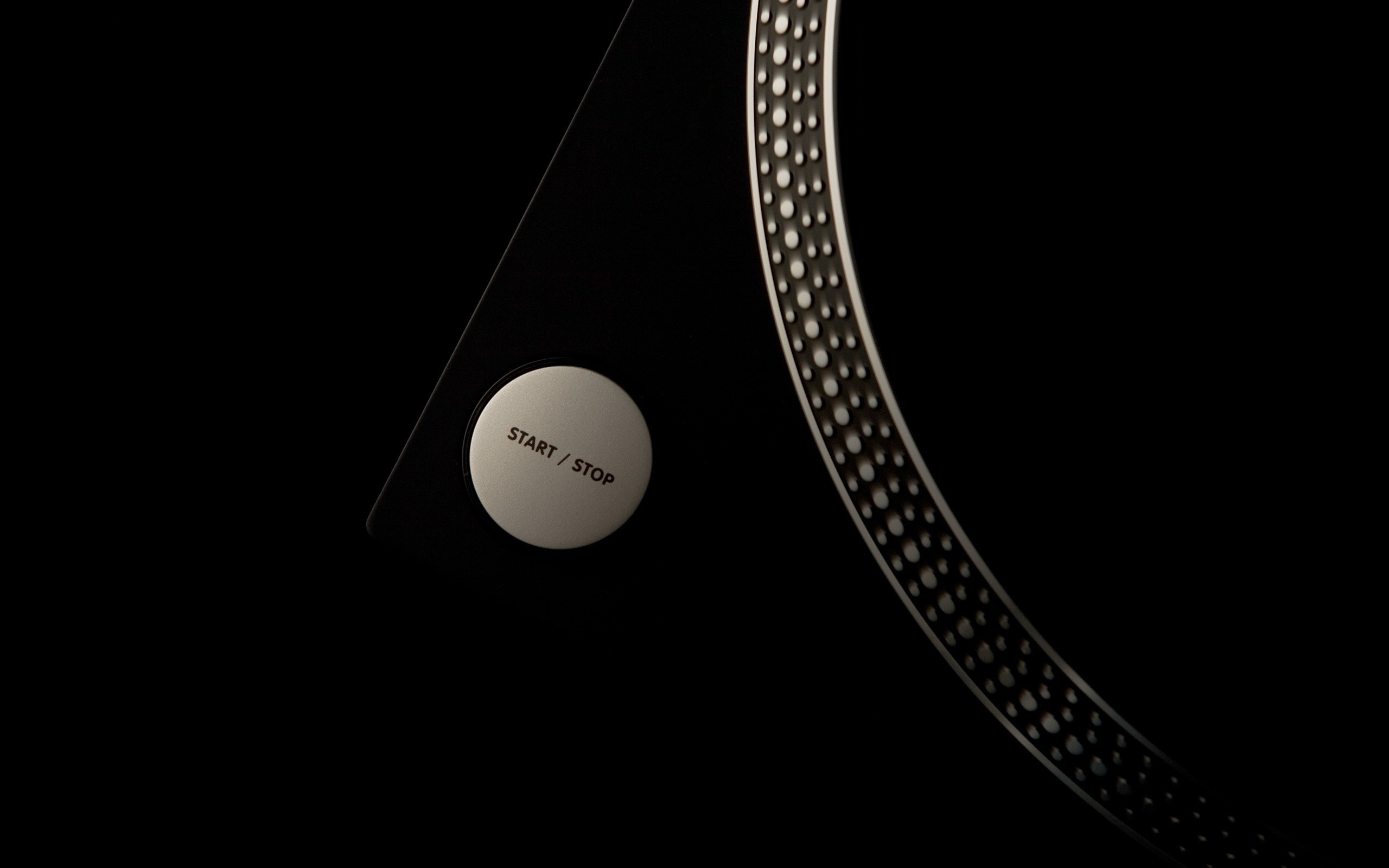
10 Tips on How to Write a Killer Music Brief

As composers and producers writing to picture, the single most important skill we’ve developed over the years is the ability to interpret and then deliver what clients really want.
As with any creative process, establishing a solid dialogue between the relevant players involved is absolutely essential. But a common challenge for many clients is they often lack confidence in how to exactly express what it is they’re really after. Through no fault of anyone’s this can result in frustrations, delays and blind alleys on all sides. As such, the briefing process can be difficult to get right.
So to help, we’ve highlighted some common pitfalls when commissioning music (or sound-design) and what you can do to avoid them, to ensure you not only achieve what you had in mind, but that it exceeds your expectations each and every time.

Forgetting to do this is probably the most common mistake clients can slip into. So many say to us they feel they can’t articulate clearly in a musical vocabulary what it is they want, either when briefing or feeding back. And we always, always reply, that it’s simply not something they should be worrying about! It’s literally the backbone of our job to understand and interpret what you are saying, no matter how simplistic or seemingly vague you feel you may be (trust us, you’re not).
Music is in itself a language. It’s a minefield of both technical and historical jargon that musicians and producers use to convey ideas to each other. And like any language, it takes time to get your head round so as to be able to really communicate effectively. The better you know the lingo, often the easier it is to get across what you’re thinking.

It’s totally ok not to be able to converse in musical terminology – we almost prefer it. Any music company that expects you to is simply being unrealistic and not listening to your needs first.
The Solution
Simple. Speak in terms you’re comfortable with. Speak to us as you would describing the idea to a friend. Speak in terms of the demographic you’re aiming the film at, if needs be. All good.
Describe what you want the music or sound design to add, or more importantly, how you want it to make you or your audience feel rather than trying to describe what it should accurately sound like. Do you want the music to add energy or poise to an edit? Do you want the music to feel sumptuous and lush or youthful and alternative? It’s absolutely our job using all our experience and know-how to translate that into the sound and emotion that creates the overall feel you’re after.

We don’t mind if we have a reference or not. If you don’t have a pre-conceived idea of how the music should sound, that’s great – we love a blank canvas – it allows us to be wonderfully unexpected! Let us make some suggestions and see which approach most excites you.
But sometimes one or two reference tracks provide a good bridging device between you and us, helping us better understand what you have in mind. This is the best way to use reference tracks – a framework to discuss and express ideas.
And as above, we suggest talking about them in good old plain English, in terms you know. If you say the energy is good, we’ll know that’s happening because of the drummer’s syncopated ghost note snare work which helps tick the rhythm along. When you say it feels edgy, we’ll know that’s because the synths are side-chained hard to a 707 kick drum and compressed with a lovely old valve Drawmer compressor which give it grit. All you need do is tell us what you feel – we’ll have a pretty good idea of how it’s being achieved.
One word of caution, references by their very nature already exist and here at The Futz Butler, we like to try and break new ground and create something fresh as often as projects allow. So, whilst it’s great to have references, they should always be seen as the starting, jumping-off point in which to explore out from instead of the end target for composed music to replicate.
Which leads us onto…

We know how it is. We’d all like to use the Beatles as a soundtrack to our lives, or Kendrick Lamarr to sell cat food. But sometimes we have to be realistic. It ain’t gonna happen.
Very often we’ll be engaged onto a project quite late because a client has been using another music company and that company hasn’t been able to deliver. Sometimes this is because the creative team can get ‘blinded’ by an existing track they love yet aren’t able to sync (sound familiar)? And the music company’s work, simply doesn’t live up to that.
Sometimes it’ll just be that there are connotations outside of the music itself – maybe it was part of a social movement, or the artist has a particular place in an audience’s affections that you’re never going to be able to recreate. But more often than not, it’s the case that the other company just hasn’t made their track sound like an actual record. Hands up who’s ever said: “hmmm it still just sounds like ad or library music.” The production isn’t edgy enough, the parts are too safe and generally it just doesn’t feel real.
The solution
With us, we always aim to identify what it is specifically about the track that you love. Maybe it’s got a riff or a unique sound that is instantly recognisable. Maybe it’s the way the track builds and takes the audience on a journey. Maybe it’s just a brilliantly random juxtaposition between the way the sound and visuals interact – it shouldn’t work but it does (we like those ones!)
We know how to get something to sound the way you want it to. Whether it’s a enormous grime sub bass or an authentic 40s big band arrangement, we understand the smallest nuances in both the composition and production to make the idea sing. No more halfway baked tracks that don’t stand up.

Yes, we’re still talking reference tracks folks. Nobody likes their ideas being passed off as someone else’s and nowhere is this truer than in music.
What many clients sometimes don’t fully appreciate is that if a track comes in for scrutiny from the original rights holder, it’s usually the musicians that bear the brunt of getting sued. Creatively being asked to edge ever closer to an existing track puts composers in a very difficult position – balancing trying to deliver what the client wants with ending up in hot water.
At the end of the day, as well as illegal, ripping somebody off is often just lazy. There’s virtually always a way of achieving what the reference does without infringing any copyright.
The solution
Tell us what it is about the original specifically that you like and let us translate that into an idea which does that same thing, but won’t get anyone sued. And if in doubt, we’ll get a musicologist to cast an ear over it, for everyone’s peace of mind.

Now this may be controversial, but most musicians and producers as a rule, generally don’t like handing over their work for non-musicians or producers to piece back together. Especially when it’s usually at the eleventh hour, up against a broadcast deadline, in a dub.
It’s not because we’re fiercely ego-tistical types (OK, some are….) but producing a final mix of a track requires far more than simply bringing one part up and turning another down. It’s a constant feat of balance, interplay, leaving space, tweaking and fine-tuning, finding room for individual instruments to ‘sit’ in so every part can be heard. It’s like cooking a great meal. You may have amazing ingredients. But you still have to prepare and then cook them for just the right amount of time, in the tastiest way and crucially using the right seasoning so that they all come together to create a perfect dish.
In a good mix, all the parts will be balanced not just in terms of loudness but also in terms of frequency distribution (low and high parts), as well as in terms of side-to-side and front-to-back soundstage imaging, amongst other factors. Changing one instrument in a mix will invariably always have a knock on effect to how other parts feel. And then there’s the fact that the stems will usually have to be delivered ‘premastered’ i.e before final mastering (mastering is the final ‘spit and polish’ stage that glues together the mix and makes the audio broadcast-ready, clearer, often punchier and louder. It’s the audio equivalent of grading. Without this crucial stage, the mix can sound limp, lifeless and underwhelming).

OK, so this may sound pretty complex, but actually, I guess that’s the point. Leave the mixing and production expertise to those who do it for a living. Let everybody do their job. Using the chef analogy again, you wouldn’t order a steak, cooked the way you want, and then request to go into the kitchen to finish it off yourself if it wasn’t 100% right. You’d send it back and ask the chef to redo it. Unless you were Gordon Ramsey, and then I guess you’d just swear and hit someone….
The solution
Open a dialogue as to what in the mix isn’t feeling quite right. Very often there may be a technical reason why the musicians or producers have opted to mix something in particular way which may make sense further down the line. For example, back in the 60s, Henry Mancini always used to mix his basslines (a key component of his compositions) ridiculously loudly for the broadcast mix, as he knew that on the old television sets, the bass wouldn’t come across if they were at normal volume, so he accommodated for that.
What sounds odd in isolation, may make perfect sense in the context of the ad where there may be voiceover, sound effects and obviously the visuals to consider. And vice versa. The music track may sound great on it’s own but in final dub, seems to fight or distract from the voiceover. We’re all too aware that music is in most cases just one element that goes into making a great ad and so understanding what you need the music to do and leaving space for the other parts is key.

Writing lyrics is a bit like driving. A dark art that’s frequently taken for granted; potentially dangerous in the wrong hands; and it’s always very tricky to pass comment on someone’s attempt at it.
Throw in the need to sometimes reference a brand or tagline and the challenges increase. We’ve worked on lots of briefs where the script has used lyrics to deliver the message and have worked brilliantly (we did one for Carphone Warehouse last year which was great). Others, less so. And some don’t get out of the blocks at all.

This is usually because of two things:
1. Too many words for the film length
We’ve seen scripts with so many lyrics that you would have to be Stormzy to be able to squeeze them all in in time! Take the amount of lyrics you have written and read them out loud. Time how long it takes. If it takes more than 2/3 of the length of your film – you have too many. Sung words largely take longer to get out than spoken. Best to be ruthless and really boil down what you’re trying to get across. If there’s time leftover, you can always repeat the the good bits. Because songs are more repetitive than you think….more repetitive than you think.
2. Writing lyrics that don’t sound like lyrics
Lyric-writing is a skill. Like good prose or screenwriting, proper lyrics need tone, rhythm, economy and imagery. We’re songwriters as well as composers and producers – if your idea needs lyrics, ask us for help, we love getting involved. We might be able to suggest lyrics based around a metaphorical idea that delivers the message you’re looking for without having to actually spell it out overtly. Maybe rhyming ‘special offer’ with ‘devil lover’ is genius or career suicide, but let’s all discuss it together.

There’s a lot of music out there in existence already. A lot. And a lot of it’s great. But there’s often a stigma attached to composed music that it falls short, or sounds like ‘ad music’. Whilst that may be the case for some companies, it is certainly not the case here at The Futz Butler. Music for ads doesn’t have to (and shouldn’t) sound like ‘ad music’.
We know how to make music sound like a hit record, or authentically exactly like something from yesteryear (just check out our reel). Our approach means you get all the benefits without the heavy price tag and you get it exactly as you want it. It’s not ‘commissioned’ – it’s ‘bespoke’.
Sure, some tracks just have a place in people’s hearts that only comes from it being in the public consciousness for a period of time. And it’s true: not all music written for ads and TV is great. But if you see composed music as the poor relation, then the truth is you simply haven’t worked with the right musicians yet…

Generally speaking, we’ve found that the more people involved in the approval process the less inventive the final piece of music or sound design often ends up. It just turns out sounding ‘safer’. This is because very often the process descends into a design by committee, with the overall result being a watered down iteration of the original idea that neither offends nor excites anyone on the team.
Music is subjective, and nobody’s opinion is any more valid than the next person – that’s the beauty of music, it’s all personal. But having too many people on the team at development stage can mean that daring or brave creative ideas have less chance of making it to air. Similarly, having lots of different people on the briefing can mean the job feels confused as one party tries to steer the track in one direction with another trying to do (inevitably) the opposite.
The solution
Be brave, have convictions of your creative and stand behind them. Follow your instincts. Don’t be too quick to make changes if somebody on the team expresses reservations that you don’t agree with. Ask yourself if the feedback being implemented is pulling towards or away from the creative vision? Is it pushing a square peg into a round hole by trying to make the music into something it was never intended to be and as such undermining what was liked in the first place?
Sometimes, just allowing an idea to gestate and come to life over the natural process of it’s creation can mean the end result actually does tick all the boxes.


This is a very simple one. Whilst we understand it’s not always possible, try as far as possible to provide a locked cut to work with, if there is to be one. Particularly when working with sound-design or when music needs to be scored quite tight to picture or make certain hit points. Changing the edit can often have disastrous implications for the audio (which inevitably has to react to visual changes rather than the other way round).
We’re can-do people, and 95% of the time there is a musical, clean way of accommodating the change in edit. But sometimes, if things are too prescriptive or not considered, it can mean adding an irregular length bar in to try and meet a sync point with the new cut, or truncating a melody to make way for a VO. Both of which can make the track feel odd or out of whack. As we say, usually there is a way round it that feels natural, but being aware of how taking a few frames out here and adding a few there will impact on the sync of the audio, is always a good idea as early as possible. It also saves time (and money). So a good idea all round then? Yep.

This really is just common sense, but you’d be surprised how many times we’ve had music (and mix) feedback after a cursory listen through a smartphone whilst in the pub. We’ve had occasions in the past where we’ve had clients asking for more and more bass on a track only to find out they’re reviewing on their tiny iPhone speaker.
We’re fully aware of the ever-changing landscape of devices that audiences will consume our work through and we always do rigorous cross-checks to make sure our mixes translate beautifully on less than ideal playback set-ups. Whilst we’re not expecting you to have the kind of set-up we have in our studios, having a half-decent stereo speaker system or set of headphones that you regularly listen to music through, know the sound of and trust, is absolutely vital to get a proper representation of the work and so as not to miss details that may influence a multitude of decisions further down the line.
Even better, where possible, come over to ours and listen back as it was intended to be heard in all it’s HD audio glory. We can also faithfully reproduce how the track will sound on various other speaker types (laptops, TVs, phones, in car etc) so you know, when we deliver a mix, you know it’ll stand up. And hey, we make a cracking brew…

OK, lastly this is more of a general mindset thing. We’re certainly not in the business of asking our clients to lower their creative expectations – quite the opposite. But a lot of musicians get a bum wrap when it comes to earning from their craft.
Sure, everyone has a bottom line and trying to get good value is absolutely fair and right. But checking your expectations at the outset when it comes to what you’re paying and what you expect the result to be, is always a good idea.

Just be realistic when it comes to budgets. If you want it to sound like an 80 piece string section at Abbey Road, don’t pay £50 and need it back in 20 minutes. If you want to run it globally on all media but only have £500 then it might not be enough. Paying everyone fairly helps the creative process and doesn’t leave anybody feeling like they’re being either greedy or exploited.










